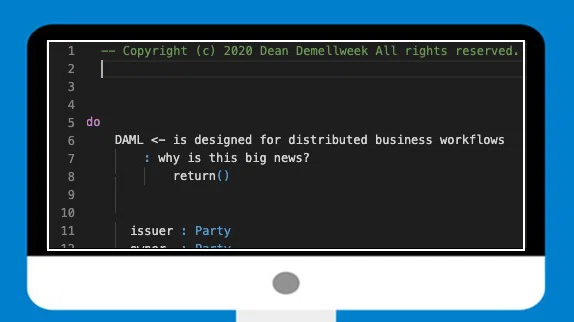It seems that there is currently a crypto bull market. In any case, Bitcoin appears to be on its way to a new all-time high and now stands at around 18.000 US dollars. Anyway, blockchain technology is currently attracting a lot of attention. No wonder, then, that the question of regulating crypto-values or crypto assets is again moving more into focus. But blockchain is also playing an increasingly important role on other levels, be it in the discussion about Libra or central bank money. The German government is also following the technology closely. Now it has once again made a comprehensive statement on the subject of blockchain.
In a parliamentary question (Bundestags-Drucksache 19/24088), the German party FDP asked the federal government about the subject of “crypto-assets.” Background: The European Commission has submitted a draft regulation on crypto assets. The code regarding “Markets in Cryptoassets” (“MiCA”) would be one of the most comprehensive rules for digital assets. In this context, the German government has commented on several exciting topics.
The core question is: How many cryptocurrency-related enterprises already applied for and gotten permission from the Federal Institution for the supervision of financial service (BaFin) after knowledge of the Federal Government?
Background of the question
Since 1.1.2020, Bitcoin and other crypto values are defined by law in Germany. Bitcoin and other cryptocurrencies represent cryptographic values according to the legal definition in § 1 para. 11 p. 4 of the German Banking Act (KWG). According to this, cryptographic values are digital representations of a value that has not been issued or guaranteed by any central bank or public authority and does not have the legal status of a currency or money, but is accepted by natural persons or legal entities based on an agreement or actual practice as a means of exchange or payment or serves investment purposes and can be transferred, stored and traded electronically. To put it simply, their trading requires a permit from the German Federal Financial Supervisory Authority (abbreviated to BaFin).
The answer by the Federal Government of Germany
Concerning the crypto-custody business introduced on January 1, 2020, as a new financial service subject to authorization, BaFin has received a total of nine applications for approval under § 32 (1) KWG. The number of 9 applications is relatively low. However, traditional banks generally do not require a special license for crypto transactions so that the number should be treated with caution. The following applies: The introduction of the crypto custody business and the extension of the financial instruments in the KWG to include crypto values were combined with a transitional provision for companies that were already active before the new regulation came into force (§ 64y KWG). These companies can continue their current business and must submit a complete application for permission by November 30, 2020. They had to notify BaFin of this by March 31, 2020. BaFin currently has around 50 notifications of intent.
The next question was then linked to the MiCA regulation in the draft by the European Commission. Does the German government know how many companies in Germany or the European Union would fall within the scope of the MiCA Regulation?
The German government first emphasizes the uncertainty in the market overview. Neither in the EU nor Germany is there a consolidated market for the issuance of crypto values and asset-referenced tokens or electronic money tokens. Instead, the MiCA Regulation-draft is intended to create the necessary framework for such markets. According to a very rough estimate of the EU Commission, the draft impact assessment for the MiCA Regulation could include about 60 to 150 service providers in the EU. They offer trading platforms or services for the acquisition of cryptographic assets.
On other issues, the German government comments that it is currently impossible to predict when the EU’s MiCA regulation will come into force. Nevertheless, the German government believes that BaFin is well prepared for future regulation.
The old theme: crypto and money laundering
In the parliamentary question, the German government was asked about the extent to which, to its knowledge, crypto values are used for money laundering and terrorist financing. This topic is old and frequently objected against a too large spread of trade with crypt values. Therefore, a public-legal licensing procedure makes sense, to out-brake by reliable, nationally examined offerers precisely this form of objections against the trade with Kryptowerten.
The German government also sees the potential of the abuse of cryptocurrencies for criminal activities. Crypto-currencies are used according to their representation, particularly in the range of the goods fraud (among other things so-called eBay fraud) as well as with Phishing and transfer fraud activities. Here, funds fraudulently obtained by perpetrators are regularly and promptly converted into cryptocurrencies to conceal the payment flows. Nevertheless, of course, this is a typical crypto phenomenon, and with classic book money, frauds take place.
According to the German government, crypto-currencies can play a more significant role in the financing of terrorism. Islamist terrorist groups would also solicit donations online in Germany using crypto-currencies. Here too, the author sees a real danger of the abuse of cryptocurrencies for hidden payments. Nevertheless, terrorist groups are also financed with classic book money and mailbox companies. Again, that is thus no phenomenon, which concerns only cryptocurrencies.
Another interesting question is whether Germany is in exchange with the Facebook-supported Libra Association on the planned MiCA regulation. The German government denies this.
In its response, the German government emphasizes that it is also pursuing its own plans independently of the EU Commission’s agenda. It is currently preparing the cabinet’s draft of a law to introduce electronic securities (eWpG-E). The draft law serves to modernize German securities law and the associated supervisory law. With the introduction of electronic securities, one of the central components of the federal government’s blockchain strategy is to be implemented. Irrespective of the general classification of electronic securities, this is also intended to create the possibility of issuing electronic securities based on distributed ledger technology for the first time. The author of this article also expressly welcomes this draft law, which he described as fantastic in his podcast “The Blockchain Lawyer” in episode 37.
Prohibition of cryptocurrencies?
Further, the Federal Government is asked how it stands to a possible prohibition of cryptocurrencies by the European Union commission under certain conditions. Background: According to Article 19 (2) MiCA Regulation in the draft, the permission required for the issuance of asset reference tokens must be denied if there are objective and verifiable reasons for this assumption that the business model of the applicant issuer may pose a serious threat to financial stability, monetary policy transmission or monetary sovereignty. It is feared that Libra and Bitcoin, in particular, could be called into question. As explained at the beginning, Bitcoin has meanwhile acquired considerable value and is traded and discussed globally. Bitcoin is also referred to as “digital gold” and can represent a kind of “substitute currency”. The discussions about Libra are sufficiently well known. If more than a billion users of Facebook, Instagram, Whatsapp & Co. can trade Libra at once, this currency, designed as a stablecoin, can significantly gain considerable importance. Classical currencies could fall behind. No wonder, therefore, that the European Commission would like to retain a possibility of intervention here. Germany welcomes the regulation. From Germany’s point of view, it takes up the joint statement requirements issued by France, Italy, Spain, the Netherlands, and Germany on September 11, 2020. It remains to be seen whether this regulation will actually be included in the code in the end.
The digital central bank money
A fascinating question is then also asked of the German government about central bank money (Central Bank Digital Currency). How does the German government view this now much-discussed phenomenon? The German government remains neutral in its answer. It refers to what is currently happening politically: On October 2, 2020, the European Central Bank and the national central banks that issue the euro (Eurosystem) published a “Report on the Digital Euro,” which focuses primarily on Digital Central Bank Money for Everyone (Retail CBDC). It also contains a brief appendix on Digital Central Bank Money for Commercial Banks (Wholesale CBDC). Simultaneously, a public consultation was launched to clarify the mood and the particular concerns of companies, associations, and private individuals on this topic. The German government does not see a time horizon for the introduction of CDBC.
Overall, this answer also shows that the German government takes blockchain and crypto assets very seriously. Current projects show a high interest in blockchain technology. Of course, the author expressly welcomes this and is looking forward to furthering developments.












